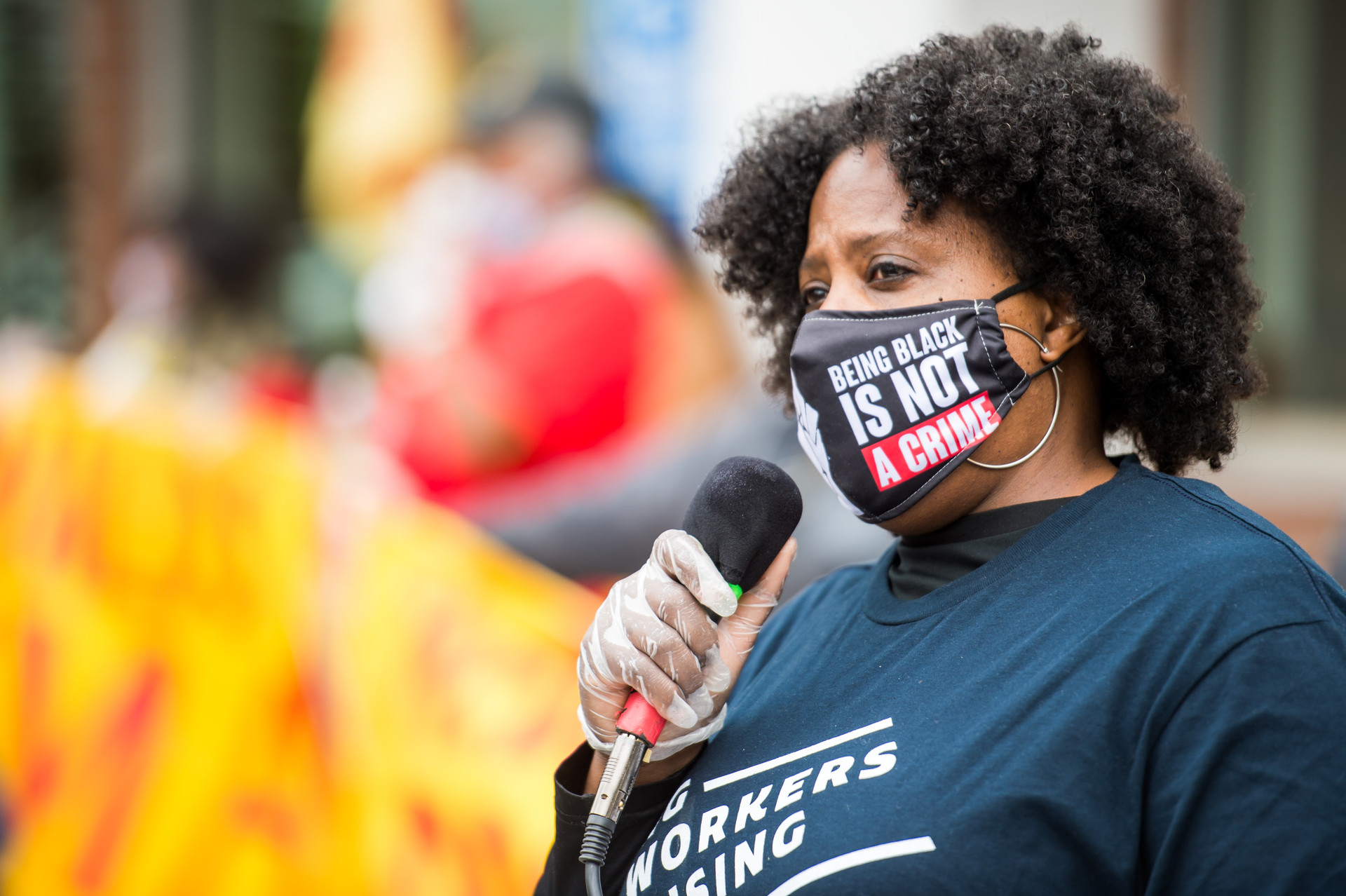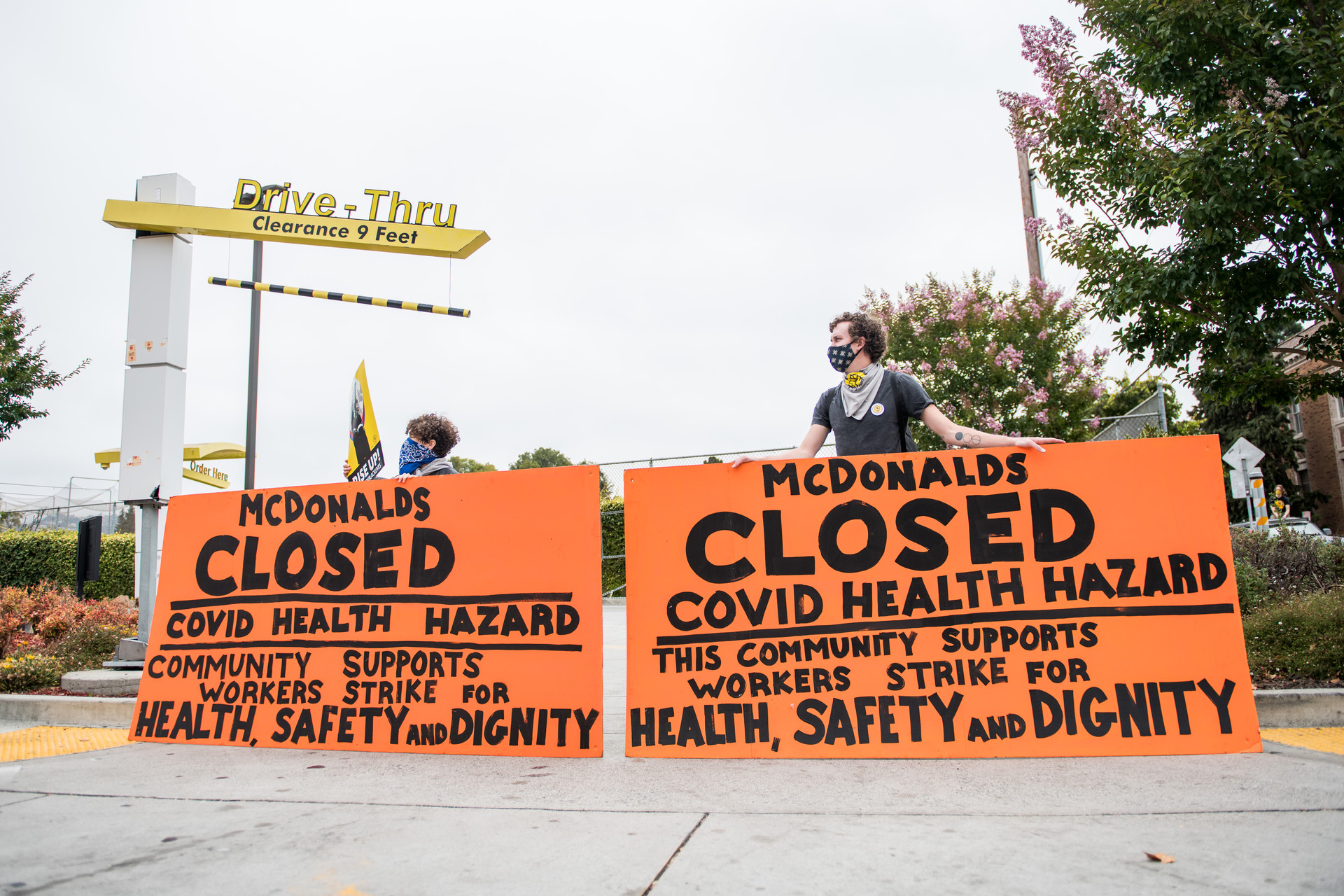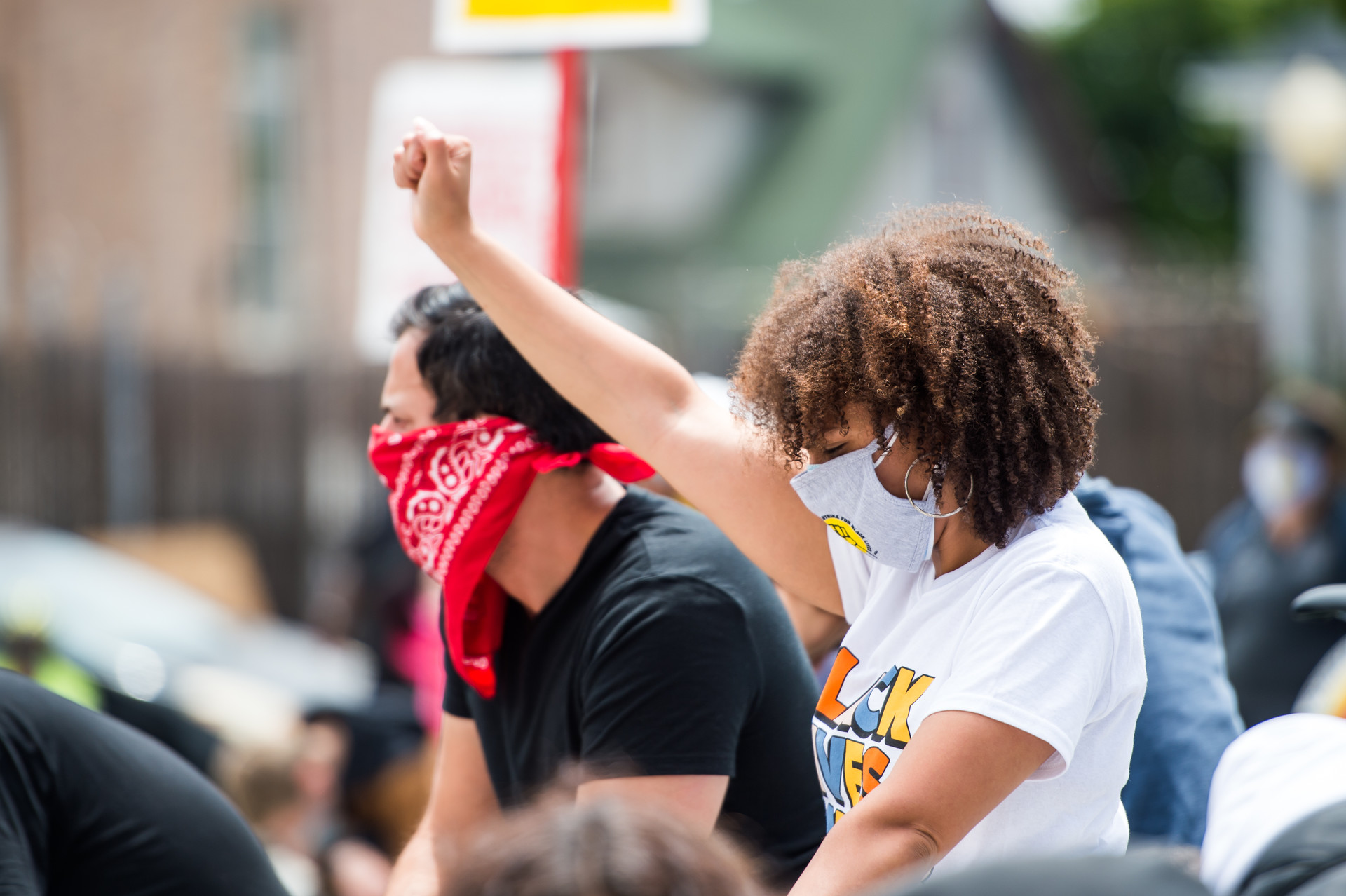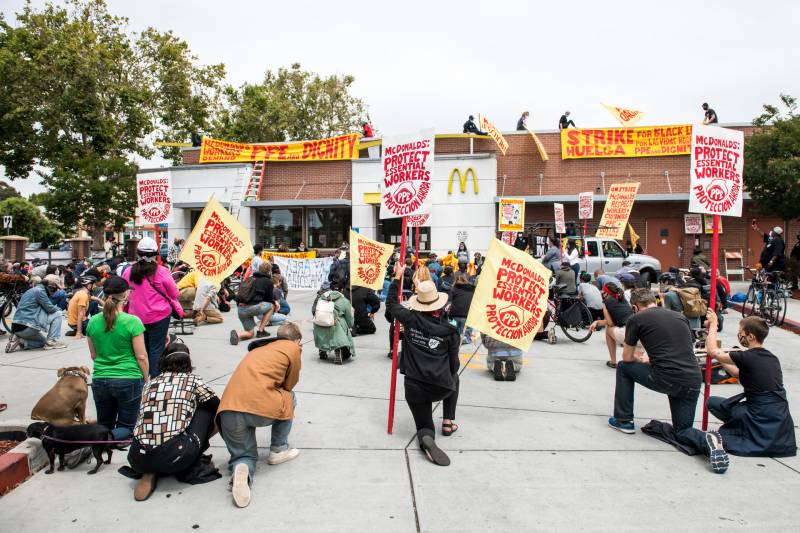Workers in 25 cities across the country protested economic and racial injustice on Monday by walking off the job for eight minutes and 46 seconds, the amount of time that Minneapolis police officer Derek Chauvin reportedly knelt on George Floyd’s neck.
In Oakland, Black Lives Matter and union protesters started at a McDonald’s location on Telegraph Avenue, where the owner allegedly told employees to make COVID-19 masks out of coffee filters and unused dog diapers.
Four workers there have since filed a public nuisance lawsuit, alleging that management failed to provide protective equipment, forced workers to continue working while showing virus symptoms and discouraged workers from using paid sick leave.

At the protest, Cherri Murphy, a minister at Speak Life Ministries, said corporations are hypocritical for running advertising campaigns that profess support for the Black Lives Matter movement, while at the same time they keep profits instead of raising wages or providing adequate protective equipment.
“It’s easy for corporations to point the finger at police. What they should do is point the fingers at themselves as well, because racial justice is economic justice. Those things are linked together,” Murphy said. “The same conditions that exploit and harm and cause the killing of Black and brown lives are the same conditions that exploit and harm black and brown folks who want to earn a livable wage.”

One of the biggest issues at the protest was how corporations use stock buybacks and dividends to enrich shareholders. McDonald’s in particular has been criticised for paying dividends to shareholders during the pandemic. In just the last 5 years, the company has spent over 40 billion in stock buybacks and dividends to enrich shareholders.

SEIU president Mary Kay Henry was at the rally. She says some of those profits over the years should have been used to pay workers a living wage, “McDonald’s employs overwhelmingly majority Black, brown, asian workers and pays them poverty wages.”
In a statement, McDonald’s says “it is our responsibility to continue to listen and learn and push for a more equitable and inclusive society.”
